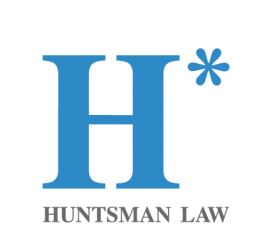Taking advantage of lack of capacity
Suspicion of a fraud, taking advantage of person’s lack of capacity or asserting undue influence on a decision maker who has made a suspicious gift are questions and issues that often all arise together.
If you believe that a Will Maker lacked the requisite capacity to prepare a Last Will and Testament, that a loved one was the victim of undue influence, that a loved one was taken advantage of such that a gift was not actually intended, or that you were wrongfully disinherited we would be happy to consult with you.
Here at Nanaimo Estate Law, Mr. Huntsman has been dealing with these and similar issues for over 16 years and would be happy to guide you either towards or away from litigation depending upon the circumstances.
In the case of Parmar v. Tiwari 2016 BCSC 30 I argued that since an alleged gift was made close to the date of death that there should be a heightened capacity test, akin to that for a testamentary disposition. Although I won the case, I did not win that argument. To read the argument and learn more, click here:
Proving undue influence
Despite there being a reveres onus attached in some circumstances where there is a position of influence, undue influence claims arising from suspicions gifts, suspected frauds, or disinheritances are not necessarily easy to prove. In the decision of Modnese v. Delac Estate Mr. Justice Groves helpfully sets out the law with respect to the existence of a relationship from which undue influence may arise as well as the test to see if it did indeed arise: http://canlii.ca/t/2ffll
Testamentary capacity
If a Will has been prepared in suspicious circumstances, perhaps resulting in a disinheritance, perhaps in circumstances where undue influence and weakness of the mins is suspected the question of the requisite testamentary capacity at the time the Will was executed may be raised.
The test for testamentary capacity in British Columbia flows directly from the English case of Banks v. Goodfellow. This test is set out in the recent decision of Mr. Justice Meiklem in Elder Estate v. Bradshaw [2015] BCSC 1266.
[29] The seminal case defining the meaning of testamentary capacity is Banks v. Goodfellow [1861-73] All E.R., Rep 47 at 56:
It is essential to the exercise of such a power that a testator shall understand the nature of the act and its effects; shall understand the extent of the property of which he is disposing; shall be able to comprehend and appreciate the claims to which he ought to give effect; and with a view to the latter object that no disorder of the mind shall poison his affections, pervert his sense of right, or prevent the exercise of his natural faculties; that no insane delusion shall influence his will on disposing of his property, and bring about a disposal of it which would not have been made otherwise.
[30] In assessing the evidence bearing on the issue of testamentary capacity, I observe and adopt the comments of Harvey J. in Danchuk v. Calderwood, [1997] B.C.W.L.D. 087 at para. 113:
[113] Whether the testator’s mind was sound is a practical question. It does not depend on scientific or medical definition. Medical evidence is not required nor necessarily conclusive when give. The question may be answered as well by laymen of good sense.
It should be noted that the test is applied at the time that the Last Will and Testament is executed so there may be lapses in capacity both before and after the execution of the Last Will and Testament, which lapses do not prevent a finding of the existence of the requisite capacity at the time the Will is actually executed.

